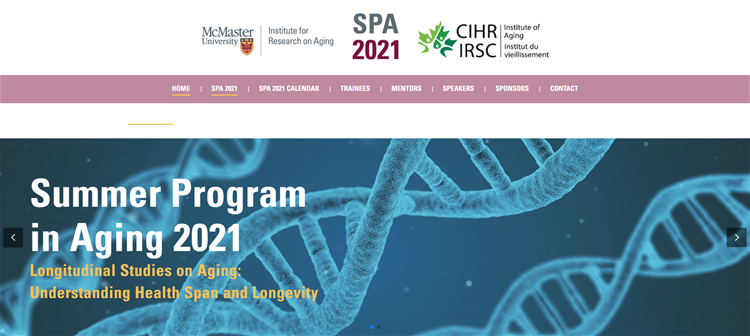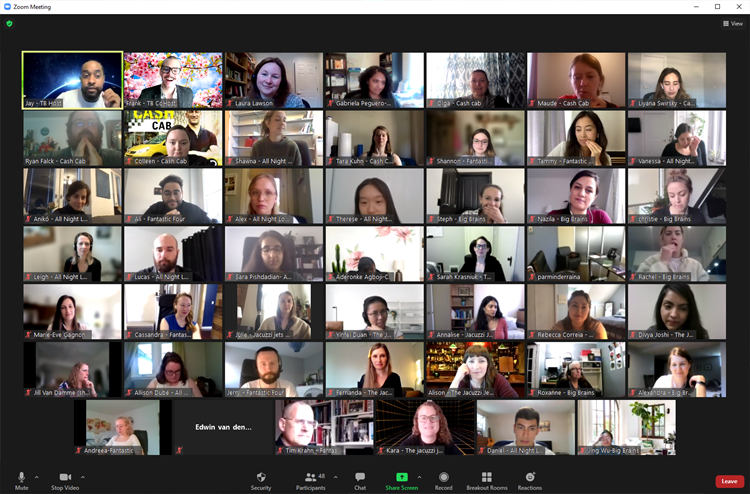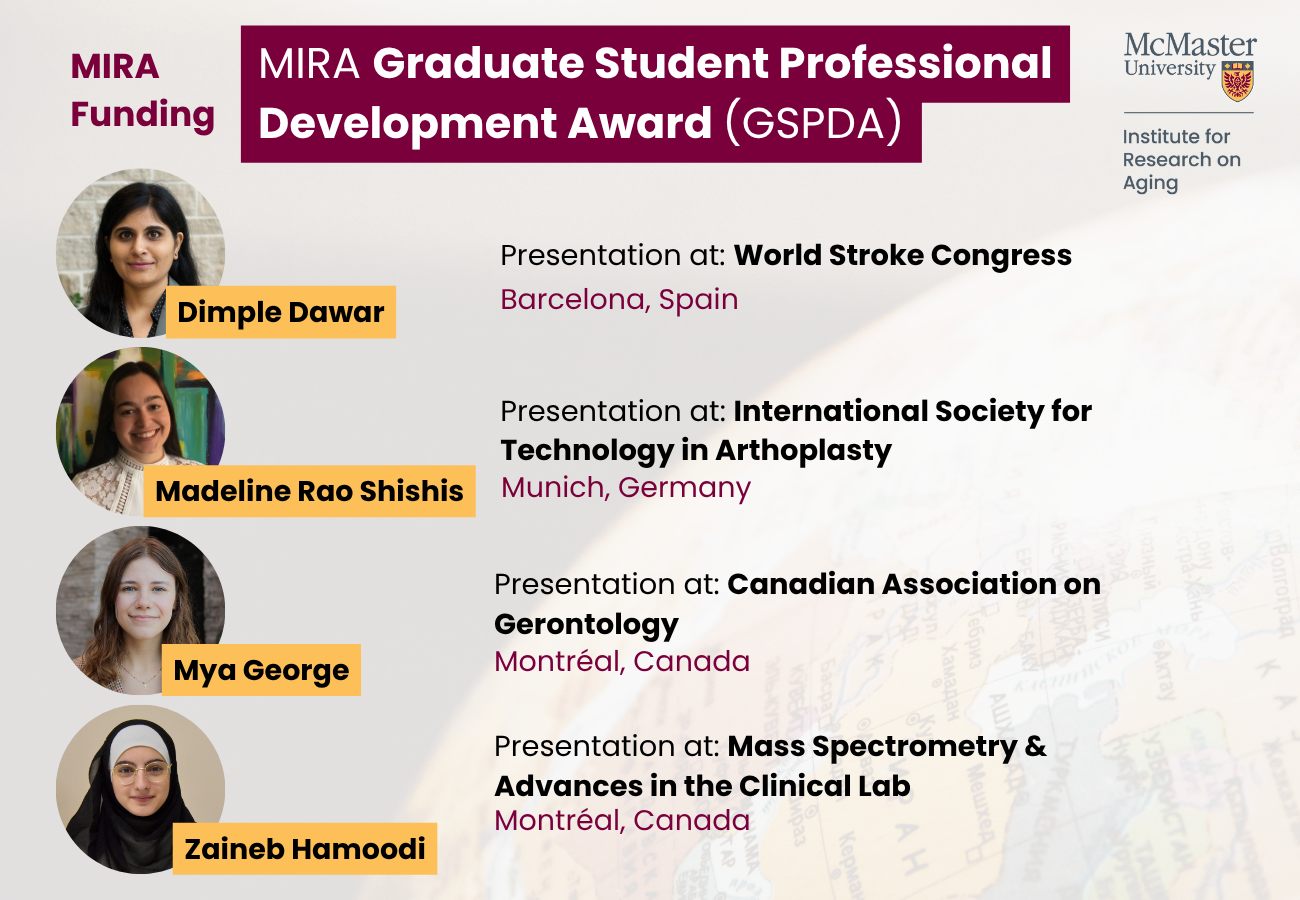
Published: ​June 10, 2021 | By Summer Shepherd
This spring, the CIHR Institute of Aging and the McMaster Institute for Research on Aging (MIRA) brought together 57 Canadian and international graduate students and postdoctoral fellows for the 2021 Summer Program in Aging (SPA), an intensive two-week program focused on longitudinal studies on aging.
“When it comes to understanding human health span and longevity, quality population-based longitudinal studies, like the Canadian Longitudinal Study on Aging (CLSA), can spur important translational research activities and provide insight into the ongoing needs of older Canadians,” said Dr. Parminder Raina, Scientific Director of MIRA and the principal investigator of the CLSA.
During SPA 2021, which ran virtually from May 2 to May 12, trainees explored methodologies and analytical approaches, learned about research opportunities, and developed skills in knowledge translation through workshops, lectures and team-building activities. The interdisciplinary curriculum was complemented with a full social program as well as ample networking and mentoring opportunities.

SPA 2021 brought 57 trainees together from across Canada and around the globe to explore longitudinal studies and aging research​
Trainees were also required to work in mentored groups to complete a CLSA Catalyst Grant Application. On the final day of the program, each group presented their proposed research ideas covering a diverse set of research topics. The teams were judged, and four teams were chosen to receive a CLSA data access fee waiver (valued at $3,000) and a $500 research award for each team member wishing to pursue their SPA 2021 research proposal.
“SPA 2021 has been such a great opportunity for learning and connecting with other researchers in aging,” said Therese Chan, a University of Ottawa Master’s student in Epidemiology and SPA trainee. “The past two weeks have been filled with insightful presentations from research experts, networking opportunities with other trainees, collaborative exercises to strengthen grant writing skills, and fruitful mentoring sessions.”
Several researchers in aging from across Canada participated in the program either as core mentors or as speakers on a variety of subjects, including data science and big data analysis, Indigenous data governance and research ethics. Speakers from CIHR led sessions on grant writing, peer review, and equity, diversity and inclusion in the health research funding system. SPA 2021 also featured internationally recognized speakers in longitudinal studies on aging and geroscience.
Despite the shift to an online format due to the global COVID-19 pandemic, SPA 2021 was very well received by student participants and researchers involved.
“This was a successful demonstration of how MIRA was able to deliver an engaging, world-class training program online,” said MIRA’s managing director Ine Wauben, who worked with major partners Forte, Dell Technologies, ThermoFishcher Scientific, Boehringer Ingelheim and LVL Technologies to sponsor the event.
By providing trainees with new skills, professional connections to other researchers and an increased awareness of resources, SPA 2021 has prepared the next set of ambitious students to undertake research on longitudinal studies of health and aging.
“I’m proud that the SPA training program has been offered by the CIHR Institute of Aging since 2006, with yearly cohorts of some of the most talented trainees in the field of aging from Canada and beyond,” said Jane Rylett, scientific director for the CIHR Institute of Aging.
Read about a SPA trainee’s experience

